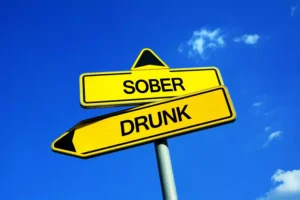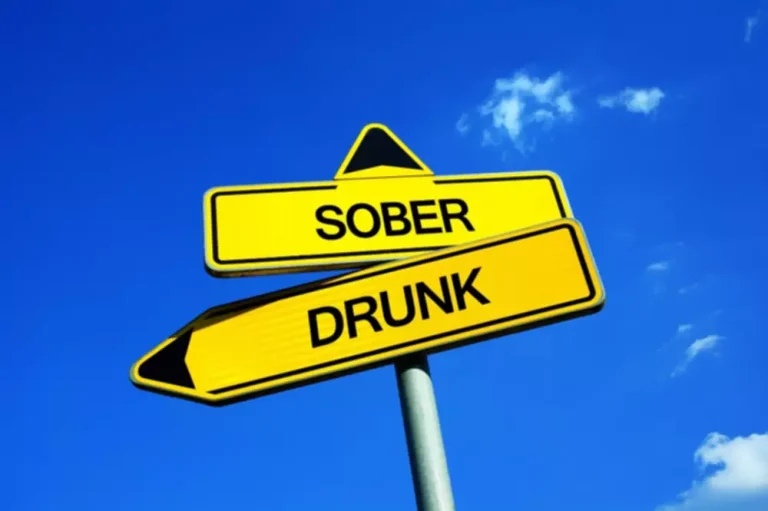
Alcohol is a nervous system depressant, meaning it alters how certain chemical messengers (or neurotransmitters) behave in the brain. Alcohol relaxes you by increasing gamma-aminobutyric acid (GABA), the neurotransmitter that makes you feel calm and lowers inhibitions. It decreases glutamate and this also slows down your thoughts and helps ease you into a more relaxed state. “Unfortunately, traditional tools physicians use to assess a patient’s cardiovascular risk may underestimate risk in women,” Dr. Anhert explains.
How we reviewed this article:
- In this case, it is uncertain whether the longer term treatment of alcoholism requires additional aggressive therapies aimed at treating underlying depressive or anxiety disorders.
- When warning signs don’t look like the dramatic chest pain we see in movies, they’re more likely to get overlooked.
- Women have different biology, hormones, and even smaller blood vessels, she explains.
- Maybe you acted in ways that you now regret or feel embarrassed about.
- You might fixate on these thoughts and get trapped in a cycle of worrying and rumination.
These feelings cause additional stress, which doesn’t help at all when you might already have a lot on your plate. It’s common to experience these symptoms, along with the other physical symptoms of a hangover. Antidepressants may be taken every day to help treat anxiety, while benzodiazepines are generally used for temporary relief from uncontrollable feelings of anxiety.
Drinks You Can Easily DIY at Home When You’re Sick With a Cold

Long-term heavy drinkers may be predisposed to developing an anxiety disorder. However, there is no evidence that moderate drinking will cause anxiety. Using alcohol to cope with social anxiety disorder can be dangerous. According to the Anxiety and Depression Association of America (ADAA), about 7 percent of Americans have this form of anxiety. Alcohol changes levels of serotonin and other neurotransmitters in the brain, which can worsen anxiety.
- They were afraid of being told it’s anxiety,” Dr. Anhert says. Trust your body and seek immediate medical help if something does not feel right. Doing so can save your life.
- Memoirs, novels, and picture books that offer words of wisdom, encouragement, and solidarity amid challenging times.
- Alcohol is a nervous system depressant, meaning it alters how certain chemical messengers (or neurotransmitters) behave in the brain.
- And chemically, the brain has had to handle the alcohol (ethanol molecules) and then has to readjust as the alcohol wears off (when it’s been metabolised).
- Your body can have an uncomfortable sensation the next day as a result, which can feel like a nervous energy or anxiety.
Hangxiety explained
Despite finding that rates of alcohol abuse or dependence were relatively high in both samples, the researchers saw no evidence that preexisting depressive or anxiety disorders occurred at higher rates among those subjects who later developed alcoholism. Although these studies raise important questions, researchers cannot draw definitive conclusions about the association between alcoholism and psychiatric disorders for a number of reasons. The major problem encountered in these studies involved the use of research methods that failed to address several important issues that drug addiction might have explained the observed relationships (Allan 1995; Schuckit and Hesselbrock 1994). Specifically, some studies focused on drinking patterns rather than on alcohol dependence or described mood/anxiety symptoms rather than true psychiatric disorders. The distinction is important, because symptoms might be only temporary, whereas true psychiatric disorders are likely to require long-term and more intensive treatments, including psychotherapy and medication.

Preventing hangover anxiety

Increased debate, however, has focused on whether the depressive and anxiety disorders precipitated the patients’ alcoholism—in which case, longer term intensive treatments aimed at these psychiatric conditions might be required to ensure the optimum chance of recovery from alcoholism. Disagreement also exists about whether longer term independent treatment for depressive or anxiety diagnoses is required for the alcoholic person to achieve a normal level of life functioning. Thus, long-term psychiatric treatment does not appear to be required for alcohol-induced psychiatric conditions to be resolved (Brown and Schuckit 1988; Schuckit and Hesselbrock 1994). Consistent with the generally negative results of these family type studies are the conclusions drawn from a recent study of 1,030 female-female twin pairs (Kendler et al. 1995).
How to prevent hangxiety
But, doing your best to process the recent news and having strategic tools in place to help move through your anxiety can help ease those fears and prepare you for takeoff. That’s why Dr. Gallagher recommends preparing to distract yourself after you board the flight and during your trip. That can mean saving a fun can anxiety make you feel drunk movie or cool TV series you’ve been wanting to watch for the flight, or having a crossword puzzle handy.

Other underlying health conditions
In addition, alcoholism and these psychiatric disorders may operate together within some families, or individual instances may occur whereby a person develops alcoholism as a direct reflection of a preexisting psychiatric syndrome. It is, therefore, not surprising that more than one out of every three alcoholics has experienced episodes of intense depression and/or severe anxiety (Cox et al. 1990; Wilson 1988). These psychological conditions are often intense enough to interfere with life functioning, and the symptoms are often recognized by physicians and other health care providers as serious enough to require treatment.